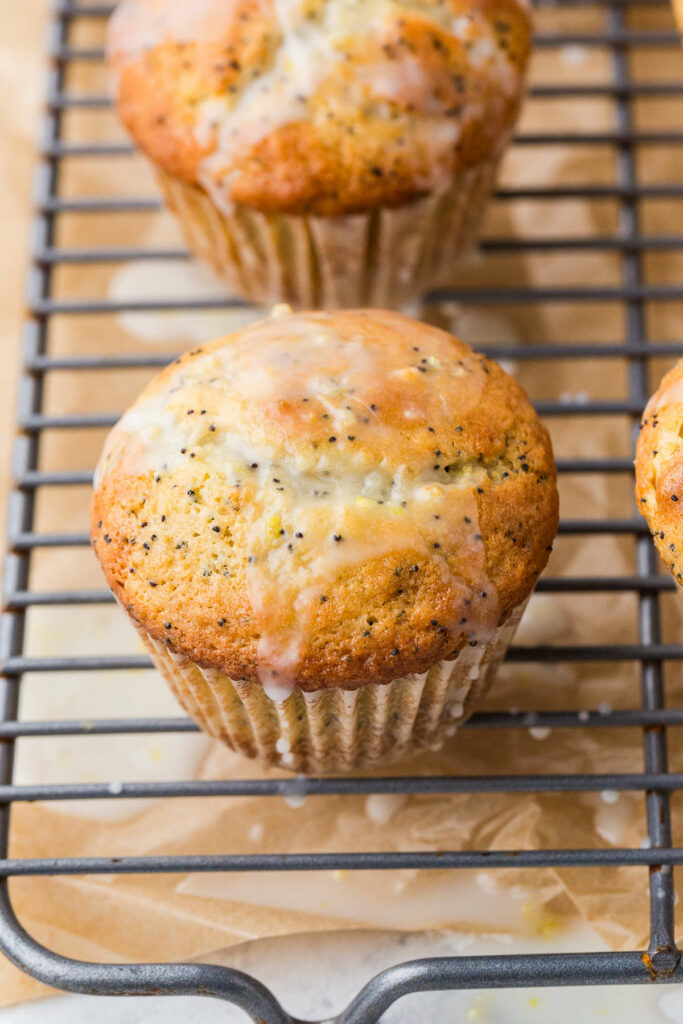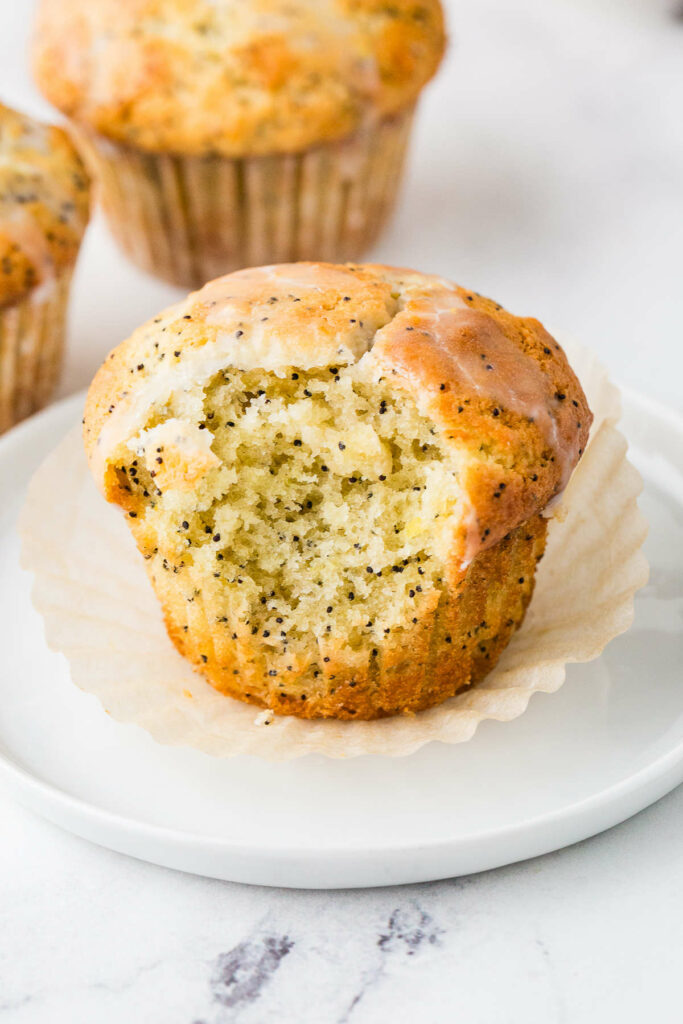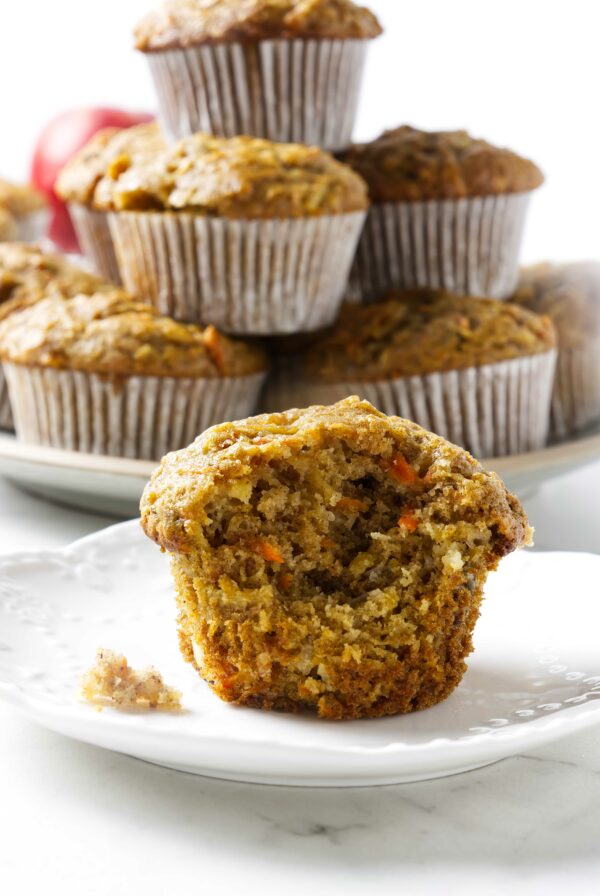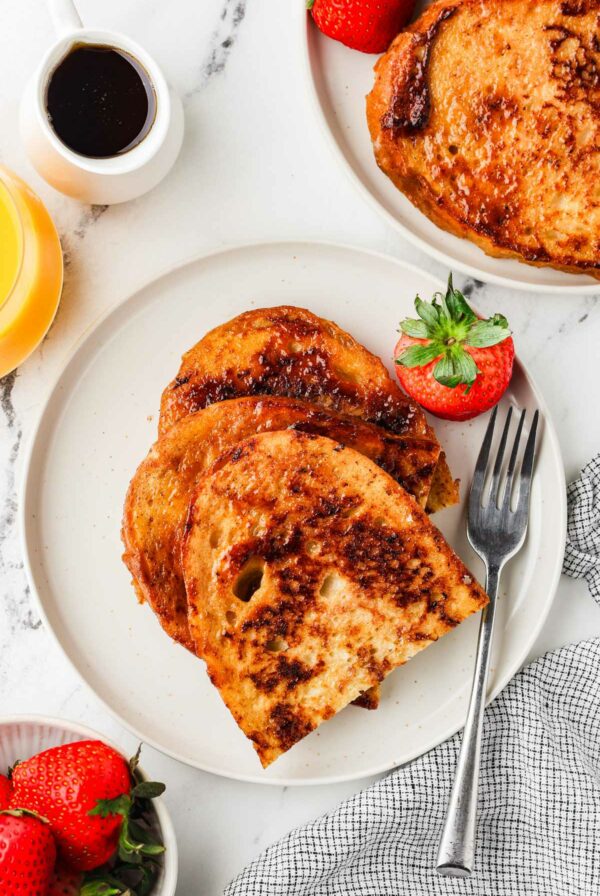This post may contain affiliate links. Please read our disclosure policy. As an Amazon Associate, I earn from qualifying purchases.
Sourdough lemon poppy seed muffins are tender and packed with citrus. The batter blends sour cream, lemon zest, and sourdough discard, adding depth without turning the muffins overly tangy.
Unlike dense bakery muffins or too-sweet boxed mixes, these strike a clean balance between rich and refreshing. A sharp lemon glaze soaks into the tops for a bold citrus finish. If you don’t have a sourdough starter, check out our classic lemon poppy seed muffins.
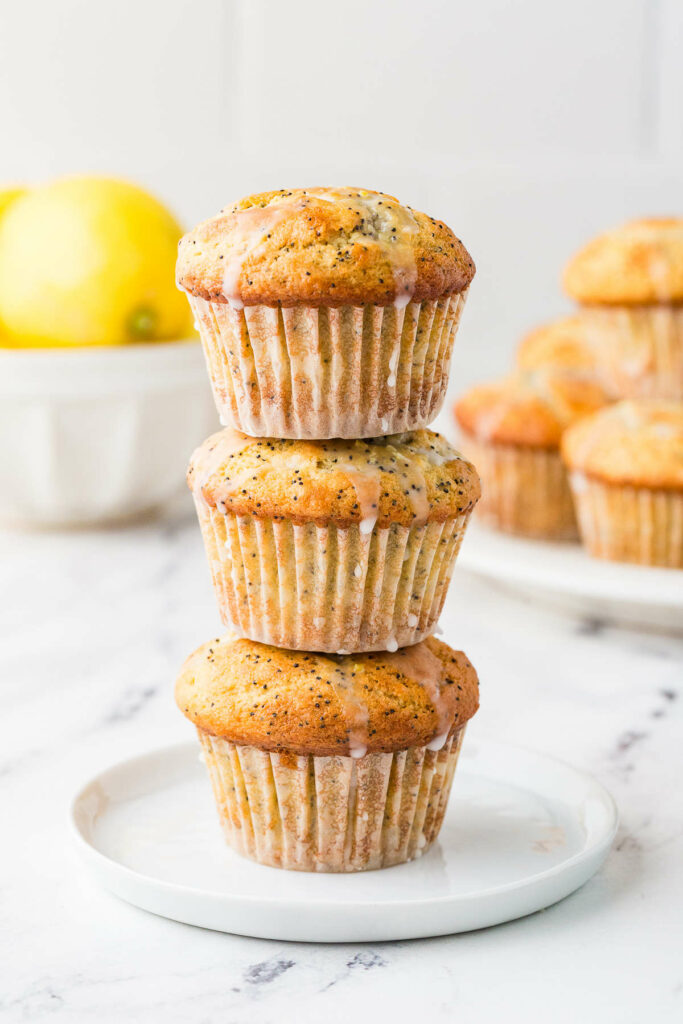
If you’re on a sourdough discard kick, don’t miss my Sourdough Morning Glory Muffins.
Here’s Why This Sourdough Lemon Poppy Seed Muffin Recipe Works
Sourdough discard adds complexity: The discard doesn’t overwhelm, it just deepens the flavor and gives the crumb a soft, almost cake-like texture.
Lemon three ways: Zest in the batter, juice in the mix, and a tangy glaze on top. This isn’t a hint of lemon, it’s the main event.
Balanced fat mix: Butter for flavor, oil for moisture. You get richness without heaviness, and muffins that stay soft for days.
No overmixing trap: Folding in the dry ingredients gently keeps the muffins tender and prevents the tough, rubbery texture of overworked batter.
Curious how I adapted this recipe for sourdough discard? Check out the recipe testing notes.
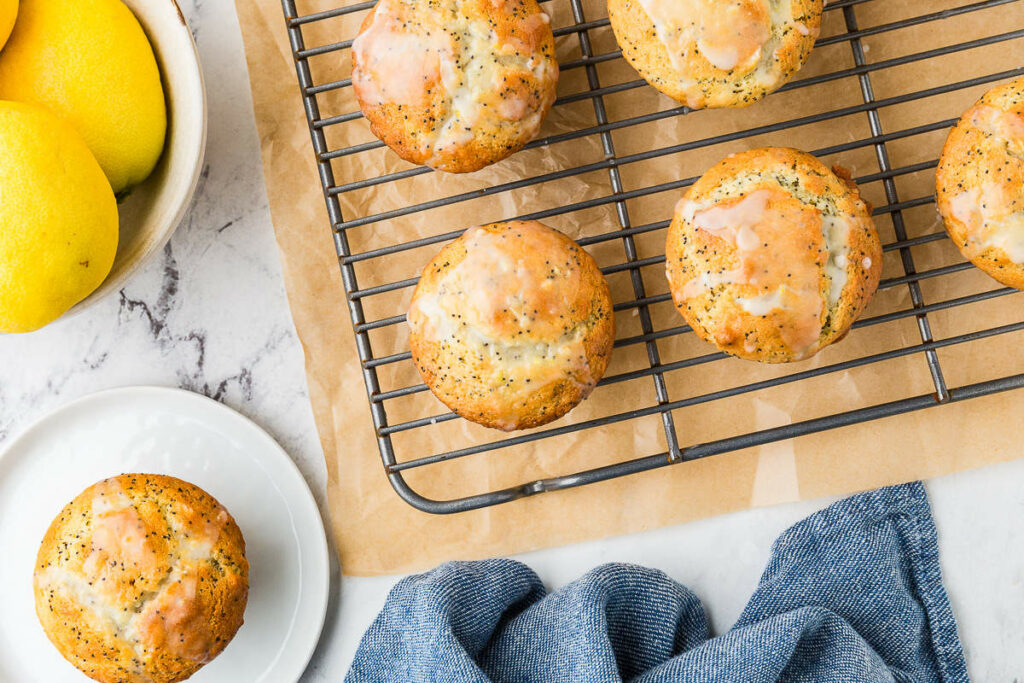
Recipe Tips
Use a microplane for zest: Fine zest blends into the sugar, releasing oils that carry intense lemon flavor through the batter.
Don’t skip the lemon-sugar rub: It’s not just busywork, it releases the oils from the zest, infusing the batter with deeper lemon flavor.
Mind your discard: Avoid discard that smells harsh or boozy. Mild discard keeps the lemon flavor in the spotlight.
Thick batter is good: Don’t panic if the batter feels stiff. It should scoop, not pour.
Glaze warm, not hot: Let muffins cool for five minutes before glazing.
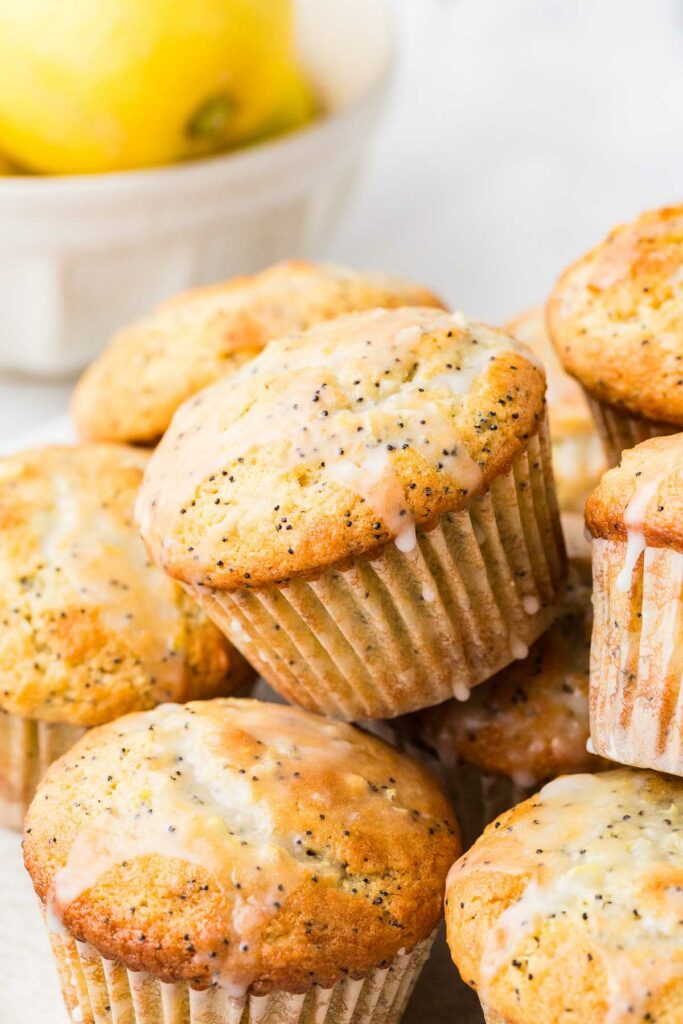
Sourdough Poppyseed Muffins
These muffins prove sourdough discard has more to offer than tangy loaves and pancakes. Here, it lends a rich backbone to bright lemon flavor, with poppy seeds for crunch and a glaze that seals the deal. Simple, citrusy, and surprisingly plush.
Want another way to bake with sourdough discard? Try my Sourdough Zucchini Muffins.
Pin this now to find it later!
Pin It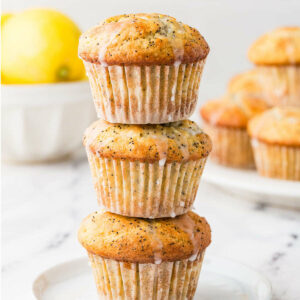
Sourdough Lemon Poppy Seed Muffins
If you make this recipe, please leave a star rating and comment.
Ingredients
- 3 tablespoons lemon zest, from about 3 lemons
- 1 cup granulated sugar, 200 grams
- 2 large eggs
- ½ cup sourdough discard, 120 grams
- ½ cup vegetable oil, 113 grams
- 1 tablespoon fresh lemon juice
- 1 teaspoon vanilla extract
- 1¾ cups all-purpose flour, 210 grams
- 2 ½ teaspoons baking powder
- ½ teaspoon baking soda
- 1 teaspoon salt
- 4 teaspoons poppy seeds
Lemon Glaze
- 1 cup powdered sugar
- 2 to 3 tablespoons fresh lemon juice
- 2 teaspoons lemon zest
Instructions
- Preheat oven to 375°F. Line a standard 12-cup muffin pan with paper liners and lightly grease the papers.
- In a large bowl, combine the sugar and lemon zest. Use your fingertips to rub them together until the sugar is fragrant and slightly damp from the zest’s oils. For best results, use a microplane zester. Its ultra-fine grating releases the oils more effectively than coarser zesters, which can leave the zest too chunky.
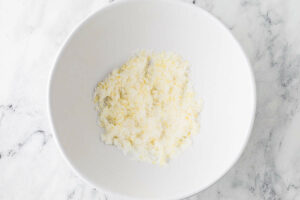
- To the lemon-sugar mixture, stir in the eggs and sourdough discard until smooth. Whisk in the oil, vanilla, and lemon juice until fully combined.
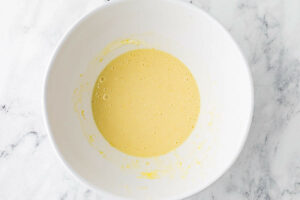
- Place a sifter over the bowl and add the flour, baking powder, baking soda, and salt. Sift directly into the wet mixture.
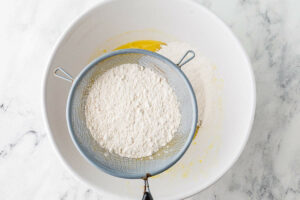
- Remove the sifter, add the poppy seeds, and gently fold everything together until just combined. Don’t overmix. If you'd like to ferment the batter for extra flavor, cover the bowl and refrigerate it for 2 to 4 hours. Otherwise, proceed straight to the next step and get them in the oven.
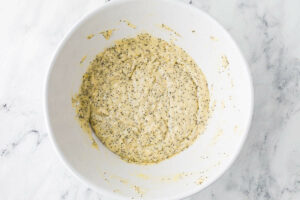
- Divide the batter evenly between the muffin cups, filling them ¾ full. Bake for 16–22 minutes, or until a toothpick inserted into the center comes out clean.
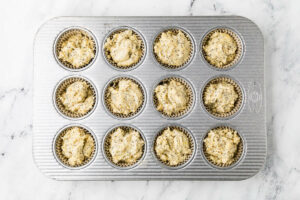
- Let the muffins cool in the pan for 5 minutes, then transfer to a wire rack.
Make the Glaze
- While the muffins cool, whisk together the powdered sugar, lemon juice, and optional zest until smooth. Adjust consistency as desired (extra lemon juice to make it thinner or more powdered sugar to make it thicker).
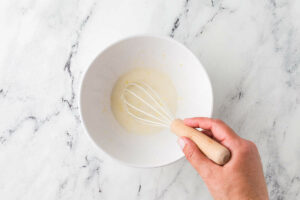
- Once muffins are slightly warm, drizzle the lemon glaze over the tops. Let set before serving.

Notes
Nutrition
Nutrition information is automatically calculated, so should only be used as an approximation.
 Like this recipe? Rate & comment below!
Like this recipe? Rate & comment below!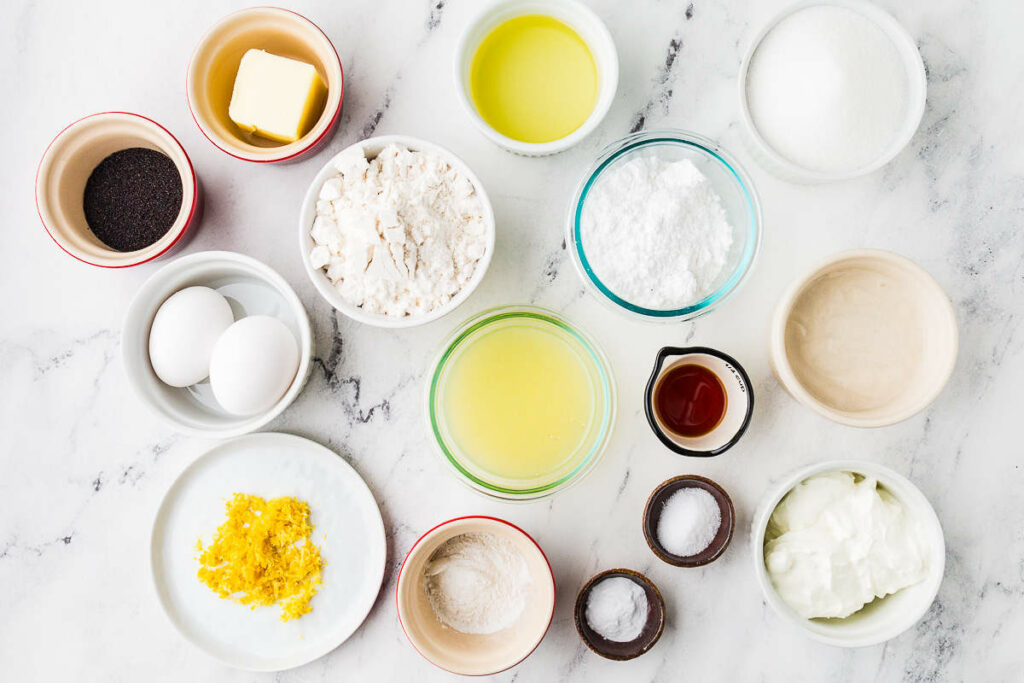
Recipe Testing Notes
This recipe is adapted from my classic lemon poppy seed muffins. To work sourdough discard into the mix, I needed to rebalance the liquids and flour without ending up with a gummy texture.
I added ½ cup (120 grams) of 100% hydration sourdough discard. That’s roughly 60 grams of flour and 60 grams of water. At first, I experimented with removing the same amounts; 60 grams of flour and 60 grams of liquid.
Since the flour in discard is already partially fermented, it doesn’t provide the same structure as fresh flour. With exact replacements, the muffins turned out dense and gummy. Pulling back on liquid overall gave the best result.
In the final version, I reduced the flour by about 30 grams (from 240 grams to 210 grams) and removed both the sour cream and butter, which cut out more liquid and fat than the discard added back. To keep the fat level consistent, I increased the oil from ⅓ cup to ½ cup, replacing the fat lost from the butter.
The result is a lighter, oil-based muffin with a tender crumb, strong lemon flavor, and a subtle sourdough depth. Still bright and citrusy, but with a little extra complexity.
